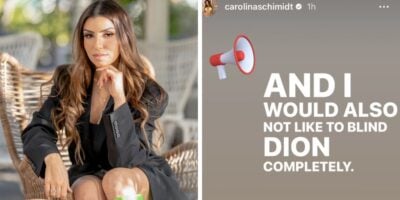Youthful Perth four-piece Scenic make dreamy disco and house sounds, and their newest EP, Shockwaves, sees them step out from behind their computers and push their music into a warm, beautiful live instrumentation.
Shockwavesis out very soon – how are you guys feeling?
Adam Tucker: Really good, it’s our first release in a year, so we’re excited to get some new music out and see how people react to it, really. Writing and recording it was quite a long process. We finished the songs about six months ago, and it took about nine months before that to write the songs. We wrote quite a lot more, but then narrowed it down to the four.
Eric Harrison: A lot of the time was spent learning how to record properly. Our previous releases were very software-oriented – we didn’t have any analogue or hard instruments. We recorded guitar and drums and bass this time around, and it takes the sound to a new level.
Now you’ve done it once, do you reckon you’re more confident about doing it again in the future?
AT: Definitely. The next one’s going to come a lot faster – we’ve been through the whole process of learning and experimenting with recording instruments, and now we’ve done it, we’ll be able to do it more efficiently in the future.
Scenic make loose, dreamy electronic tracks – I’m wondering, do you jam a lot in the early stages of song writing?
AT: Initially, maybe – we hash out bass lines and drum beats and chords. The songs come together through more of an electronic process. We spend a lot of time layering and processing the sounds, and seeing what parts work together.
EH: We might start with a chord progression or a particular bass line, then work on a chorus, and then try and fit the two together. It’s more of an electronic, producer-centred process, where we layer sounds on top of each other.
You guys released a single on Joakim’s label, and listening to a track like ‘Hours On End’, you can hear a bit of his influence – are you big fans of his?
AT: We’ve always liked his production style, and we love his early remix work.
EH: We love the music that he releases on the Tigersushi label. I guess it’s just that layered sound, the idea of an intro where the drum and bass sounds slowly start to come in. We really like that structure.
You are Perth-based – what’s it like for a young band there?
AT: It’s so isolated that you end up looking at what’s happening in the rest of the world, in France and the UK and even in Sydney, and bringing those influences back to Perth. It’s tough being in a band here, because there are only so many venues here and so many gigs you can play.
Would you consider relocating to Melbourne or Sydney?
AT: I think for now we’re pretty happy in Perth. We’re slowly expanding our horizons, and we may move at some point, but not yet.
Will you guys be touring the EP?
AT: Hopefully we will at the end of the year. We try and keep the live stuff as live as possible, considering that the songs are quite electronic. We have live bass and drums. The live show is more jammy, I would say.
EH: We have the four songs on the EP, and to fill out the rest of the 45 minutes, we play long intros and outros, we really expand on the songs. Our previous releases are quite different, in terms of their sound and how they were made, so instead of incorporating them into the live show, we’re really working on just the new stuff.
BY ALASDAIR DUNCAN
Shockwavesout Friday August 9 through Future Classic.


































